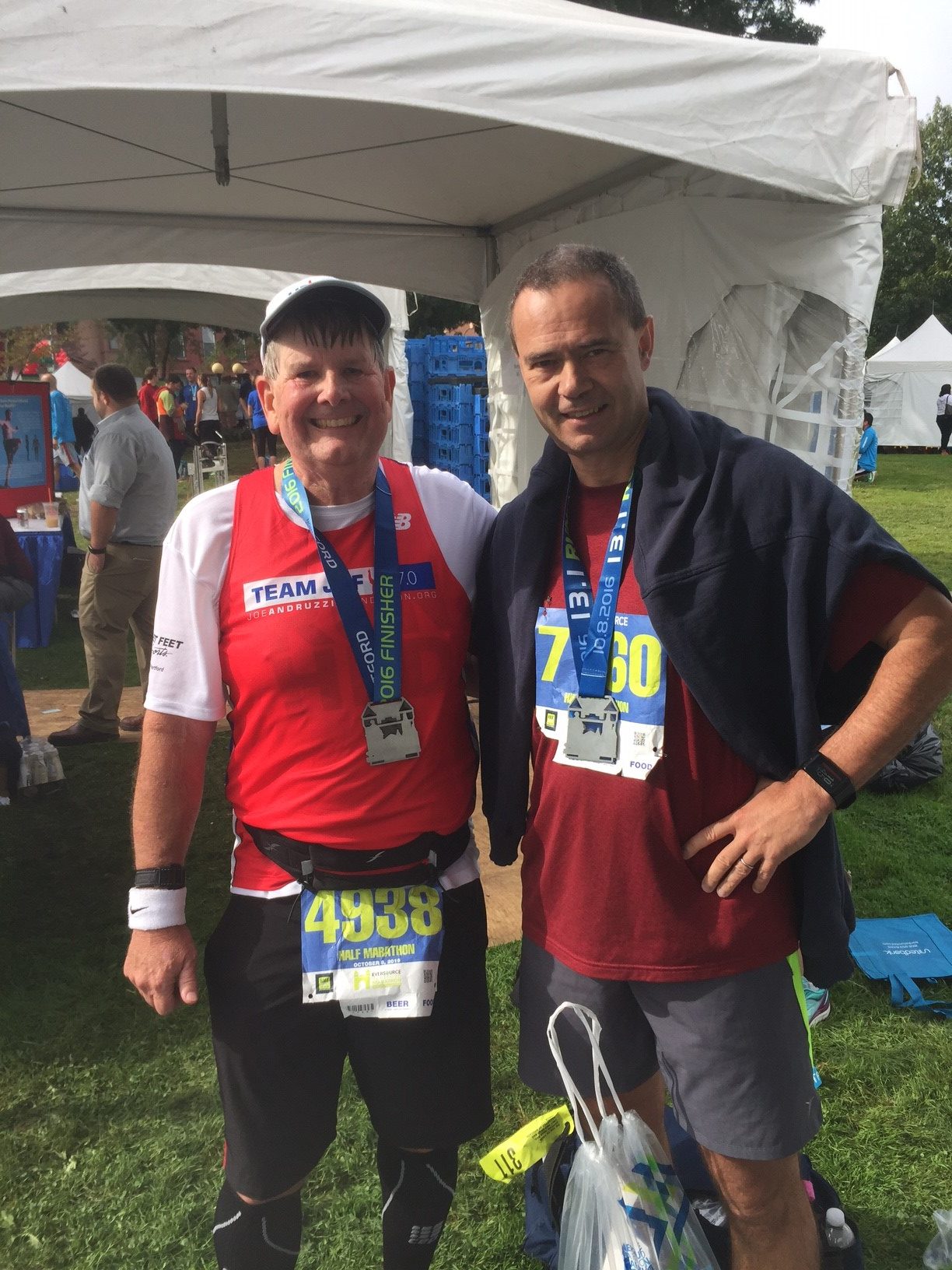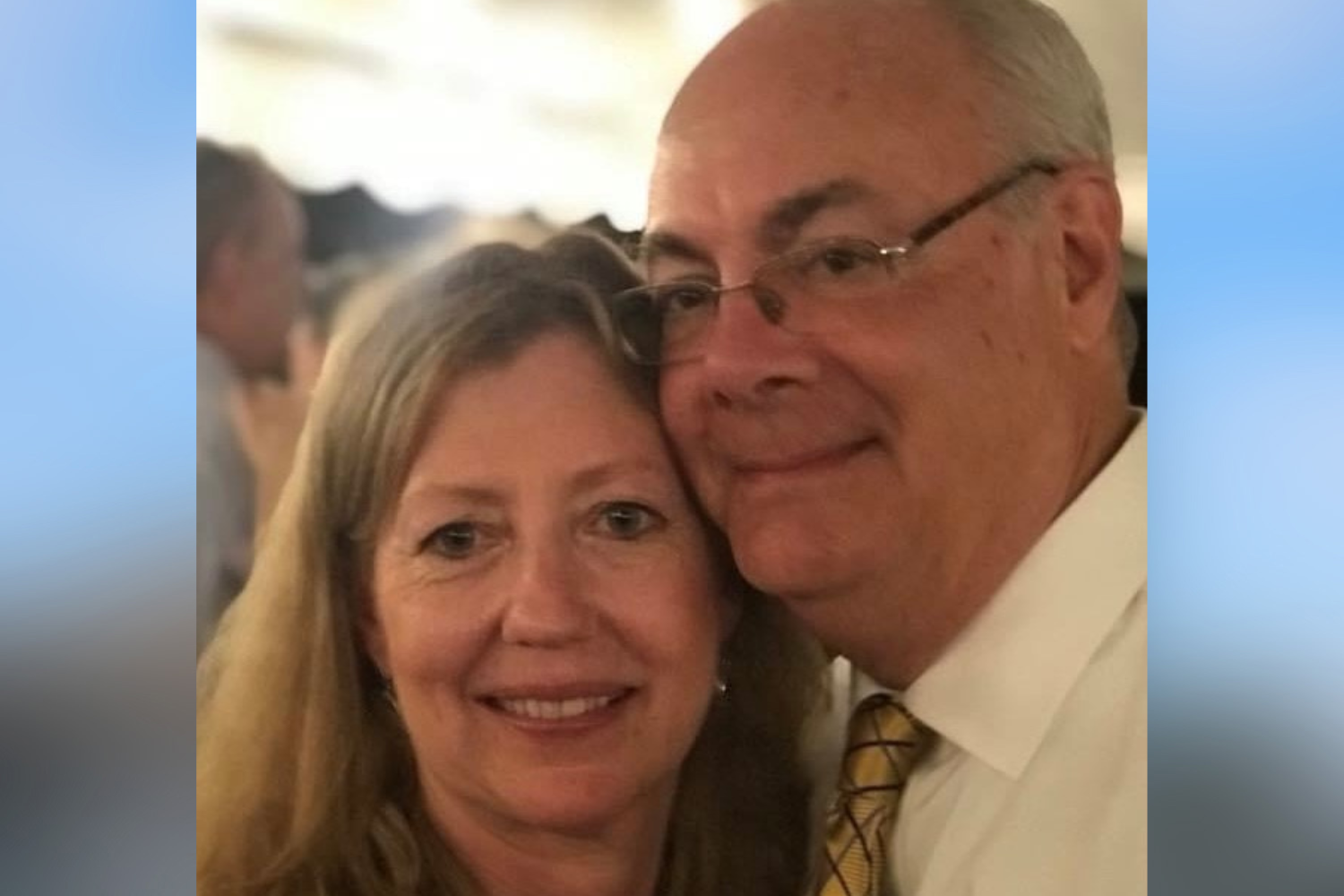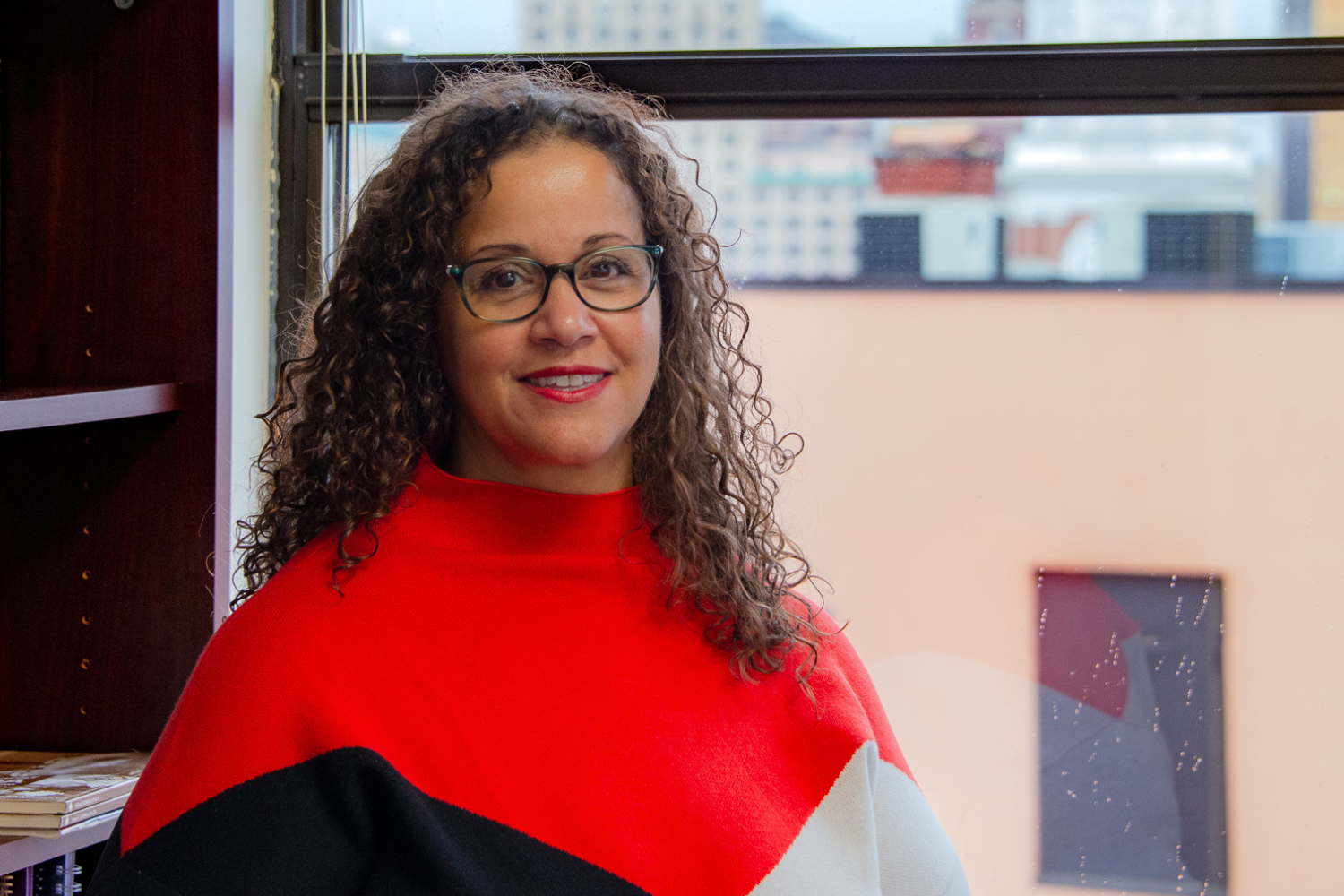Bill Donovan, 63, of Middletown just ran in the Eversource Hartford Marathon on Oct. 14 finishing its half marathon race in 2 hours and 47 minutes. But you would never know this marathoner is a heart attack and three-time cardiac arrest survivor.
For the race, Donovan’s UConn Health Calhoun Cardiology Center Cardiologist Dr. Heiko Schmitt ran with his inspiring heart patient.
“We had a great time,” shared Donovan, who was joined for the second year in a row by his heart doctor. “I tell Dr. Schmitt, when I run marathon races, everything else in my body seems to breakdown, from my knees, legs, and my feet. Everything hurts, but my heart.”
“Bill is an inspiring and amazing patient,” said Schmitt. “Very few patients run marathons after heart attacks or a cardiac arrest. He not only survived a heart attack and life threatening cardiac arrhythmias as a result of his heart attack, but he turned his life around and his exercise capacity is actually higher than before the heart attack.”
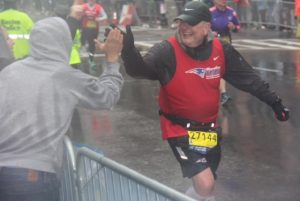
Donovan’s marathon against heart disease began at age 58 when he was surprised to experience his first signs of heart trouble. He had been previously diagnosed with high blood pressure so he started working out and eating better. As a result, he lost 50 pounds getting to his goal weight and successfully lowered his blood pressure.
“Everything was going well, but my diet history may have just caught up with me,” said Donovan.
One Sunday night he started getting tightness in his chest. At first he thought it was indigestion, but after speaking with his UConn Health doctors by phone, he visited the closest Emergency Department right away.
Donovan indeed had a heart attack caused by two artery blockages. Two stents were placed to open the blockages and to relieve his chest pressure.
“After my heart attack, I felt great, so eventually I started exercising again on a treadmill and then running outside on the track,” said Donovan. “By the anniversary of my heart attack I had run three half-marathons and was planning to run a full marathon by the next year’s anniversary.”
He started training for the Hartford Marathon in 2012. “But on my last long training run before the marathon I started to get the same feeling of tightness in my chest I had experienced once before.”
Later that week, he said goodnight to his wife and as he laid down to go to sleep he lost consciousness and experienced his first dangerous cardiac arrhythmia that caused his heart to stop.
“My doctors told me I was very lucky, since my heart jump-started itself again,” said Donovan. “When I woke up my heart was racing and I was taken to the closest Emergency Department.”
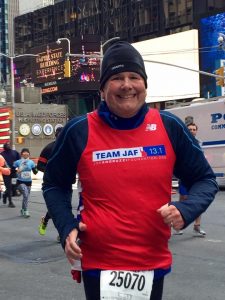
At the hospital he suffered two cardiac arrests caused by ventricular tachycardia, a dangerous arrhythmia which causes a rapid heartbeat, and with the last needing an external defibrillator to re-start his heart.
As a precaution, Schmitt, co-director of cardiac electrophysiology at the Calhoun Cardiology Center, placed an implantable cardioverter defibrillator (ICD) device under the skin of Donovan’s chest to prevent his heart from stopping in the future.
But with Donovan’s first scheduled marathon race just two weeks away, Schmitt informed him, “You know you can’t run this marathon. But I promise we will get you up and running again.”
“And eight months later, I was all the way back,” said Donovan who says his heart still feels strong as he continues to run, watch his diet, and take his heart medications.
He adds: “I live a normal life even as a heart attack and cardiac arrest survivor. I am going to stick with my heart health plan recommended by my doctors and keep running. I don’t try to run harder or more than I should, I just do what I can and what I love.”
Donovan stresses to others to really listen closely to their body’s warning signs and seek medical attention when something just doesn’t feel right.
“Get it checked out immediately, don’t try to run or work through it. Don’t overdo it when shoveling snow, or working in the yard,” he said. “And always listen to your doctor.”
Donovan and Schmitt ran this year’s half marathon in Hartford as part of the UConn Foundation Team raising funds to advance the Pat and Jim Calhoun Cardiology Center’s clinical and research work fighting heart disease.
